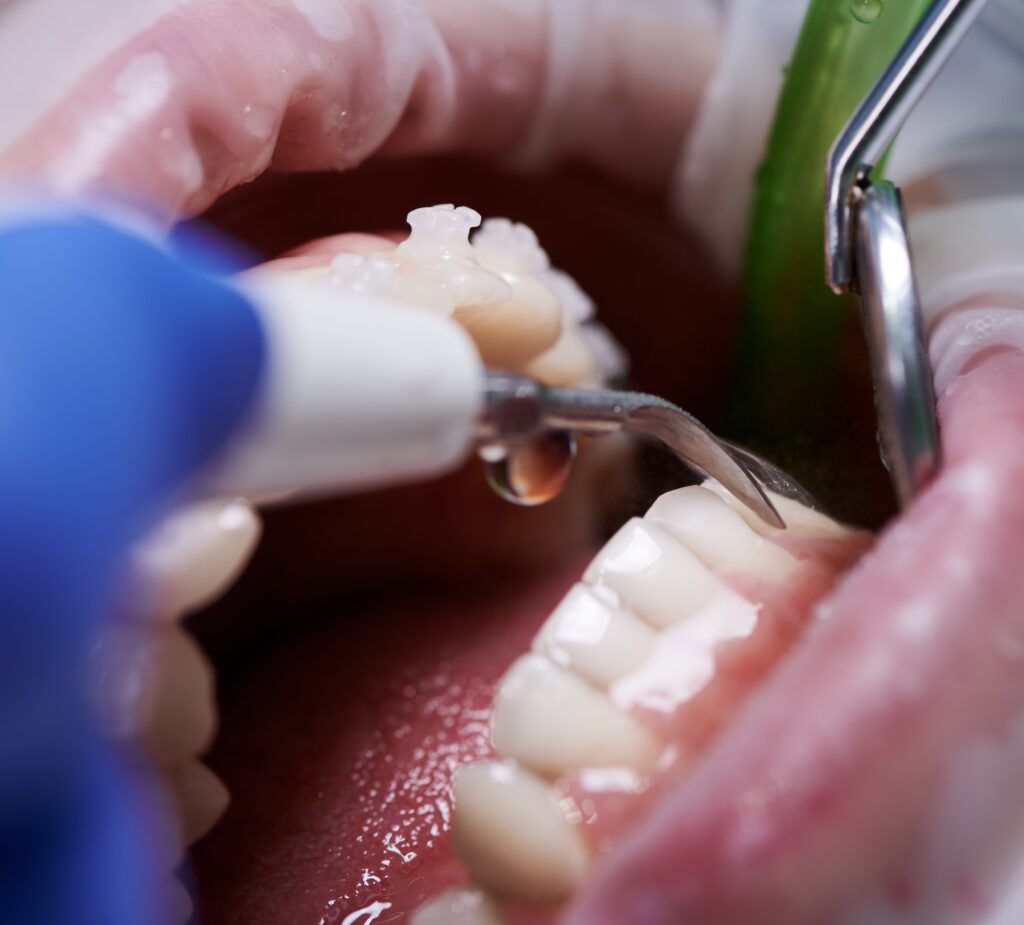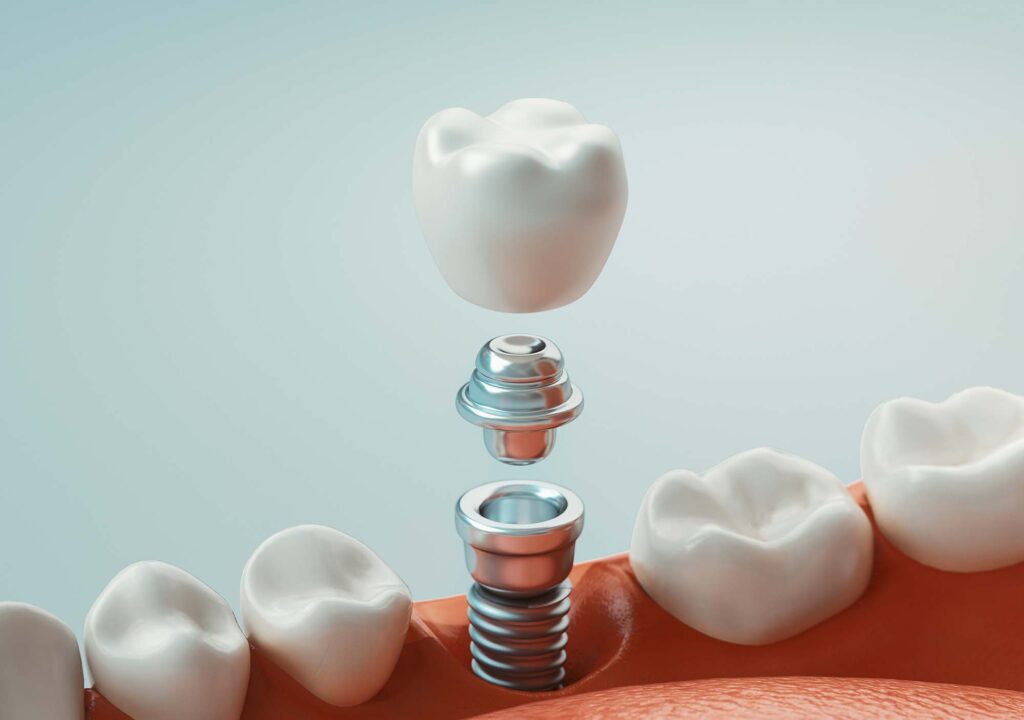
Yes, you should absolutely get teeth cleaning if you have braces. Professional teeth cleaning becomes even more critical during orthodontic treatment because braces create additional spaces where plaque and bacteria accumulate. Regular cleanings protect your teeth from cavities, gum disease, and permanent staining while ensuring your orthodontic treatment stays on track. Most dental professionals recommend cleanings every 3-4 months during braces treatment instead of the standard six-month interval.
Why is teeth cleaning even more important when you have braces?
Braces create dozens of additional surfaces where plaque and food particles can hide, making thorough cleaning at home significantly more challenging. The brackets, wires, and bands form small spaces that trap bacteria, creating a perfect environment for plaque accumulation. This increased plaque buildup dramatically raises your risk of developing cavities and gum disease during orthodontic treatment.
Professional teeth cleaning services play a vital role in preventing permanent damage that can occur while wearing braces. Without regular professional care, you risk developing white spot lesions, which are early signs of tooth decay that appear as chalky white marks on your enamel. These spots represent areas where minerals have leached from your teeth due to prolonged acid exposure from plaque bacteria.
Decalcification is another serious concern during orthodontic treatment. This process weakens your tooth enamel and can create permanent discoloration that remains visible even after your braces come off. Professional cleanings remove the stubborn plaque and tartar that home brushing simply cannot reach, protecting your teeth from these lasting complications.
How often should you get professional teeth cleanings with braces?
During orthodontic treatment, most dental professionals recommend professional cleanings every three to four months rather than the standard six-month schedule. This increased frequency helps manage the additional plaque accumulation that naturally occurs around brackets and wires, keeping your teeth and gums healthy throughout your treatment.
Some situations may require even more frequent cleanings. If you have existing gum issues like gingivitis or periodontitis, your dentist might suggest appointments every two to three months. Similarly, if you struggle with maintaining effective home care despite your best efforts, more frequent professional cleanings can compensate and protect your oral health.
Your orthodontist and dentist should work together to determine the optimal cleaning schedule for your specific needs. They’ll consider factors like your oral hygiene habits, gum health, cavity risk, and how well you’re managing daily cleaning around your braces. This coordinated approach ensures you receive the right level of professional care to support successful orthodontic treatment.
What happens during a teeth cleaning appointment when you have braces?
A teeth cleaning appointment with braces follows a similar process to standard cleanings but requires specialized techniques and extra attention. Your dental hygienist will use specially angled instruments designed to clean effectively around brackets and under wires without damaging your orthodontic appliances. These tools allow them to reach areas that are virtually impossible to access with regular home brushing and flossing.
The cleaning process typically takes slightly longer than a standard appointment because the hygienist must carefully navigate around each bracket and wire. They’ll pay particular attention to the areas where your brackets meet your teeth, along the gum line, and between teeth where food particles commonly lodge. You might feel some pressure and hear scraping sounds, but the process should remain comfortable.
Your hygienist will also focus on removing tartar buildup that forms more readily during orthodontic treatment. They may use an ultrasonic scaler that vibrates to break up hardened deposits, followed by hand instruments for detailed cleaning. The appointment concludes with polishing and fluoride treatment, which strengthens your enamel and provides additional protection against decay during your orthodontic journey.
Can skipping teeth cleanings damage your braces or teeth?
Skipping professional teeth cleanings during orthodontic treatment can lead to serious complications that affect both your teeth and your braces. Neglecting regular cleanings significantly increases your risk of developing cavities, which may require your orthodontist to remove brackets for treatment. This interruption delays your overall treatment timeline and can compromise your final results.
Gum inflammation is another common consequence of missed cleanings. When plaque accumulates around brackets and along the gum line, it triggers an inflammatory response that causes redness, swelling, and bleeding. If left untreated, this inflammation can progress to periodontal disease, potentially leading to bone loss that affects tooth stability and makes orthodontic movement more difficult.
Perhaps most frustrating are the permanent white spots and staining that can develop when professional cleanings are skipped. These marks remain visible after your braces are removed, creating a spotted appearance that can only be addressed through cosmetic dental procedures. The aesthetic impact can be disappointing after investing time and money in orthodontic treatment to achieve a beautiful smile.
How can you maintain clean teeth between professional cleanings with braces?
Effective home care between professional cleanings requires dedication and the right tools. Use an orthodontic toothbrush or electric toothbrush with a small head to clean around each bracket thoroughly. Brush after every meal if possible, angling your brush above and below the brackets to remove food particles and plaque from all surfaces.
Flossing becomes more challenging with braces but remains essential for preventing cavities between teeth. Floss threaders help you guide regular floss under the wire and between teeth, while water flossers offer a faster alternative that effectively removes debris from hard-to-reach areas. Many patients find that combining both methods provides the most thorough cleaning.
Interdental brushes and proxy brushes are valuable additions to your oral care routine. These small, cone-shaped brushes fit between brackets and under wires, cleaning areas that regular toothbrushes cannot reach. Using an antibacterial mouth rinse after brushing provides additional protection by reducing bacteria levels throughout your mouth. These home care practices work together with your regular professional teeth cleaning appointments to maintain optimal oral health and ensure your orthodontic treatment delivers the beautiful, healthy smile you’re working toward.
Schedule Your Orthodontic Cleaning Today
Maintaining excellent oral hygiene during orthodontic treatment protects your investment and ensures you’ll love your results. Don’t let plaque buildup compromise your braces treatment or put your teeth at risk for permanent damage. If you’re wearing braces or considering orthodontic treatment, request an appointment with us to discuss a personalized cleaning schedule that supports your oral health throughout the process. Our experienced team specializes in caring for patients with braces and will ensure your teeth stay healthy and beautiful from start to finish.
